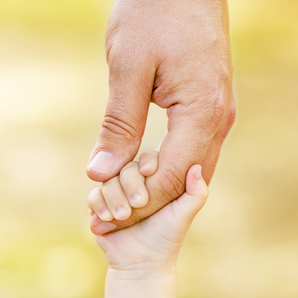|
Relationship issues are among the most common reasons people seek therapy, counseling, or coaching. When things aren't functioning optimally in our relational world, everything can seem off-kilter. No matter how varied the details of each situation, often, the root cause of relationship tension lies in the setting and maintaining of appropriate boundaries.
Personal boundaries foster safety and well-being in relationships. They are the physical, emotional, and mental guidelines we follow when teaching others how to treat us. When we are raised in households where healthy boundaries were neither modeled nor encouraged, it can be difficult to tell the difference between what boundaries are and what they are not, rendering us less likely to take appropriate action when it is needed. Here are the top five erroneous beliefs that get in the way of healthy limit-setting in relationships: 1: Boundary-setting is an act of disrespect, aggression, or punishment. Fact: Boundaries are protection, not punishment. It is up to each of us to determine what we will or will not tolerate. It is our responsibility to assert our boundaries (calmly and respectfully) and to disengage when they are not respected. Failure to honor our limits breeds resentment. Resentment may seem like it's about what another person is or is not doing, but it is actually our body's way of signaling us to set an appropriate limit and stick to it. Resentment occurs when we expect someone else to take better care of us than we take of ourselves. 2. Boundaries need to be explained, justified, or understood by others in order to be effective. Fact: Though it is always nice to feel supported or understood, others do not have the power to decide what is best for us. Other people do not have to like or agree with our decisions. Each of us is free to determine how we choose to participate in any relationship or situation; no permission or explanation required. 3. Because I tolerated certain situations or behaviors in the past, I don't have the right to set limits in the present. Fact: Boundaries do not have an expiration date. We grow and change and so do our boundaries. Someone I know once worked for a boss who expected his employees to work overtime, with little vacation. This friend never liked working long hours but chose to grin and bear it. However, once she had children, my friend was plagued by constant fear of disappointing either her boss or her family. Her physical and mental health consequently suffered. She ultimately discussed the situation with her employer, who was unwilling to grant flexible hours. After several months of stewing in her own resentment, she ultimately sought employment with a company whose work-life values matched her own--and she was so much happier! Sometimes we must struggle in order to fully know our limits. However, the moment we realize situations or behaviors are harmful or destructive, it is always our prerogative to help ourselves. 4. Boundaries require others to change what they are doing. Fact: Boundaries require us to change what we are doing. We cannot control how someone else thinks, feels, or behaves, but we can control whether or not we choose to be in the presence behavior that is counterproductive. If someone we love is behaving destructively, we may wish for them to change. However, when our feelings indicate the current situation is no longer working, the onus is ours to change it. Remember, boundaries are not about punishing another. They are about protecting ourselves. 5. Someone else's negative reaction to my boundary means that it is "wrong." Fact: Because no two people think, feel, or act the same way all the time, it is common for us to be in conflict with others. Sometimes setting a limit means someone else does not get what s/he wants, which can naturally lead to anger or disappointment. These feelings are not indicators of wrongdoing nor do they suggest a boundary reversal is in order. Knowing who we are and how we want to be treated are prerequisites for healthy connection. We need look no further than our own thoughts and feelings to tell us what is or is not acceptable. The next time you notice yourself feeling angry or resentful, I encourage you to ask yourself how these bodily signals may be inviting you to set a limit in your environment. Knowing you can protect yourself is the key to feeling safe with others. Your thoughts? Dr. Jill Gross is a licensed psychologist, therapist, and counselor. She offers grief therapy, divorce support, and other counseling services in the Phinney Greenwood area of Seattle, WA. Having trouble with boundaries? Schedule a free consultation to find out more about how counseling or therapy can help you feel safer and more secure!
Like what you see? Enter your email address below to receive exclusive personal growth-related content, post updates, and more!
10 Comments
When my children were old enough to understand figurative speech, I conveyed to them two choices: love to ski or find a new mom. I have skied with them since they were old enough to walk. They are now twelve and fourteen.
With each trip to the mountain, I watched their confidence grow. First the bunny hill, then the intermediate slope, always with Mom watching and waiting uphill as they wrangled their way down the mountain. An errant pole here, a lost ski there, a mitten on the lam. And don't get me started with the chaotic delegation of wind and waterproof gear. "Whose ski pants are those? We just got those boots last week--of course they still fit! Where's your ____ (insert ridiculously overpriced, lost Gor-tex item here)?" There were many times it was certainly more labor than love. Often, I thought, "I cannot wait for the day they can do this on their own." Apparently, that day came in February of 2016. As we were gearing up to hit the mountain, I realized there were no tearful cries for help from the backseat. No frustrated pleas for skis to be carried through the parking lot. Just a petulant, "Hurry up, mom! Geez." Then, smooth as butter, they made their way down the hill, patiently waiting as I plodded along behind them. After a morning of shredding the terrain together, the unthinkable happened: the kids asked if they could take the rest of the afternoon to ski by themselves. As in without me. Initially, my chest swelled with pride as they boarded the lift, all smiles and giggles. The two kids who once complained about cold hands and heavy equipment now trusted themselves enough to fly solo. As the summit fog carried their chair from view, the balloon in my chest became a grapefruit in my throat. The day I once longed for had finally arrived yet, instead of jumping for joy, I stood, paralyzed, wondering if the full-on ugly cry would be visible through my UV-reflective ski goggles. Today, the hill; tomorrow, college. It was a little bit heartbreaking. Most of us associate grief with tangible loss: the death of a pet or loved one, the ending of a relationship with something, someone, or someplace. But what of life's subtle losses? Any well-adjusted parent knows it's right to foster independence, yet nothing can prepare us for the cosmic sucker punch of its sudden emergence. We rejoice when they walk, talk, and feed themselves, but do we take time to grieve the last freely given hug, packed lunch, or purchased Lego set? With each of life's milestones, it is important to celebrate what is gained, but also to mourn what is lost. Making space for both joy and sorrow helps pave the way for gratitude. A grateful heart is an open heart. Later that day, from the lift, I caught a glimpse of my kids. From above, I witnessed ecstatic hoots and Cheshire grins as they effortlessly zoomed through trees and over moguls. Seeing their confident faces helped assuage my fear and sadness. "They've got this," I thought, "and so do you." Dr. Jill Gross is a licensed psychologist, therapist, and counselor. She offers grief therapy, divorce support, and other counseling services in the Phinney Greenwood area of Seattle, WA. Feeling sad about the changes in your life? Schedule a free consultation to find out how therapy or counseling can help.
Rebuilding After Loss In Parts One and Two of this series, we examined the primary reasons most of us choose to date in the immediate aftermath of loss and what to expect from dating within the first year of separation. Today, we will focus on the importance of creating a solid life, independent of relationship status.
Stable people attract stable people. When we are deeply rooted in own lives, we are better prepared to endure the fickle winds of the dating scene. With this in mind, here are some reminders and tips to consider:
Often, I am asked by the acutely grieving when the whole ordeal will be over. Grief unfolds on its own timeline and healing is retrospective. Often we must consider where we have been to fully appreciate how far we have come. Fortunately, it is not necessary to know how long something will last to keep choosing the next best step. Like a fawn on wobbly legs, we will stumble; this is normal. Each time we get back up again, we prove we are stronger than our pain. Once we have (mostly) healed, the intensity of transitional love will start to lose its appeal. The day will come when we are no longer able to imagine being with the very person we once thought we couldn't live without. It is then we are truly ready for lasting connection. In the meantime, remember we are all doing our best to get where we are going. Be patient, kind, and honest with yourself as you work to transform your old life shape into a newer, stronger one! If you have any questions about what you have encountered in this three-part series, feel free to ask them in the comments section below. Or, if you prefer to have your questions answered in a more private forum, click here! Dr. Jill Gross is a licensed psychologist, therapist, and counselor. She offers grief therapy, divorce support, and other counseling services in the Phinney Greenwood area of Seattle, WA. Feeling lost after divorce? Schedule a free consultation to find out how therapy or counseling can help you get back on track! |
AuthorDr. Jill Gross is a licensed psychologist, specializing in grief and divorce. Her coaching and therapy practice is located in the Phinney - Greenwood area of North Seattle in Washington. Archives
May 2021
Categories
All
|
HoursM-TH: 8:30 AM - 2:00 PM.
By Appointment Only |
Telephone & Email |
Address503 N. 50th Street
Seattle, WA 98103 |
*Header Photographs courtesy of Josh Martin





